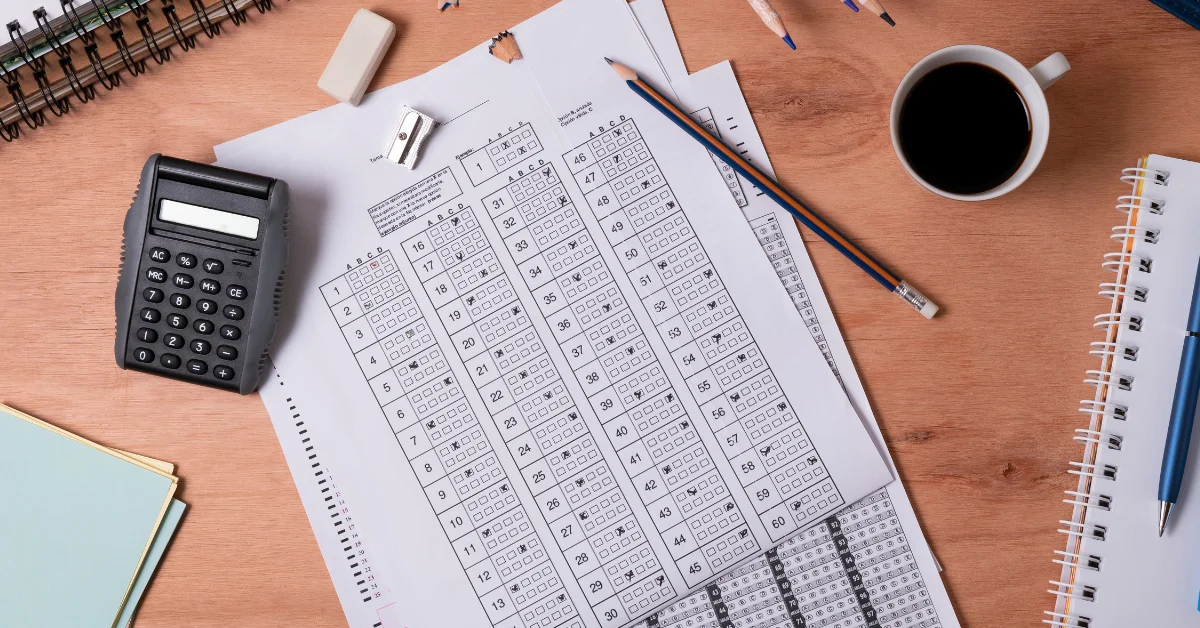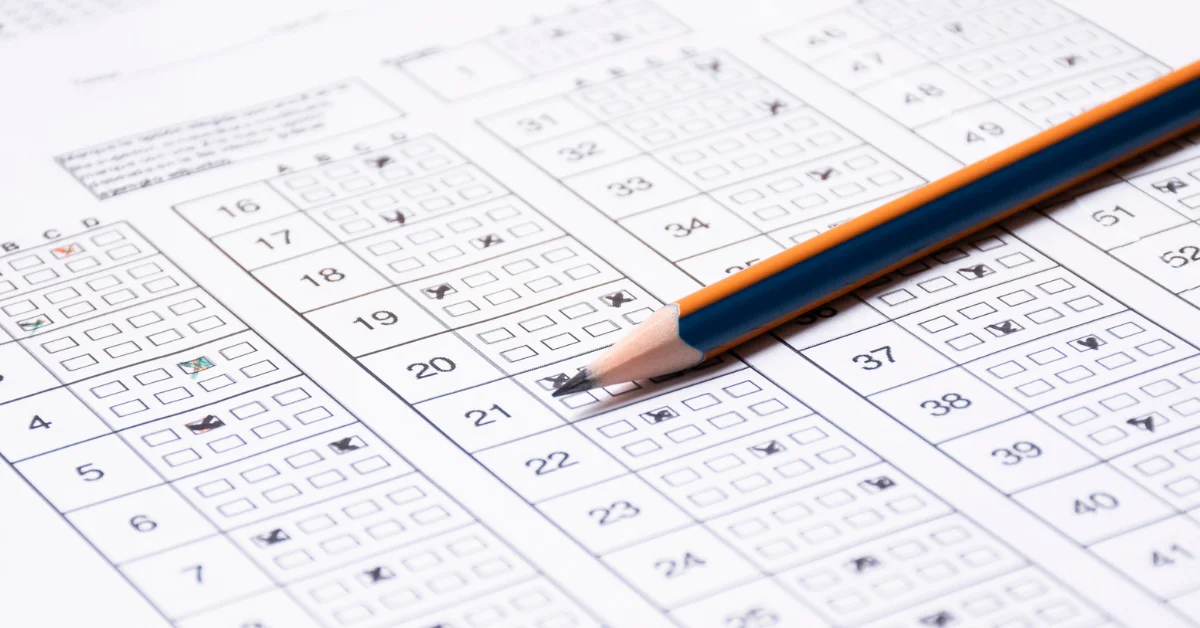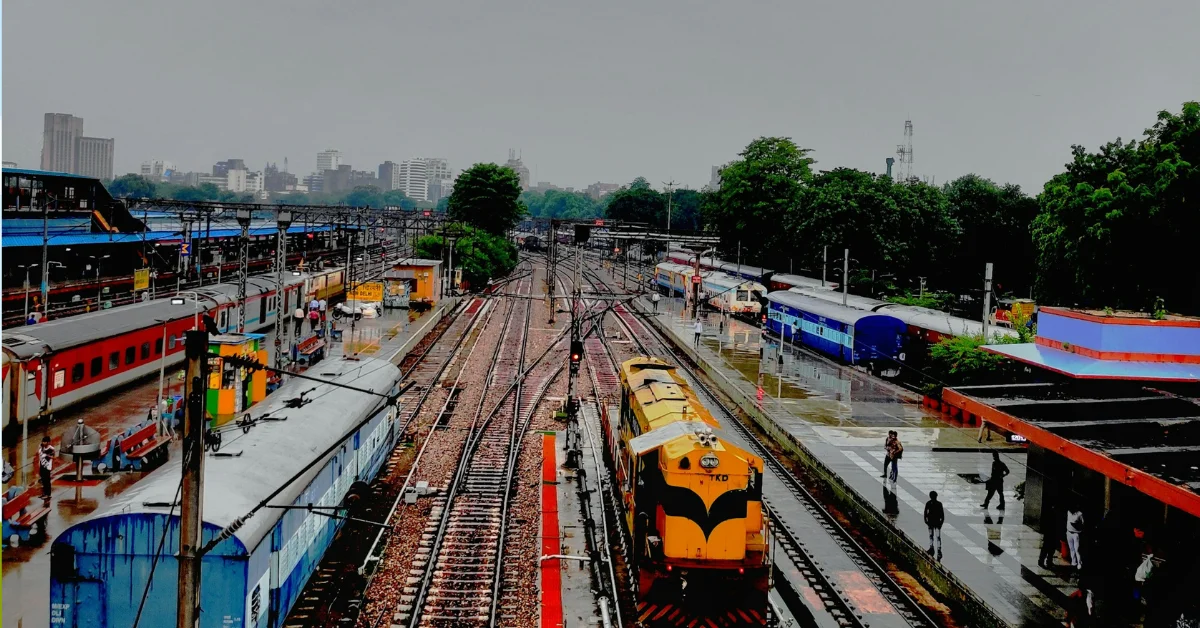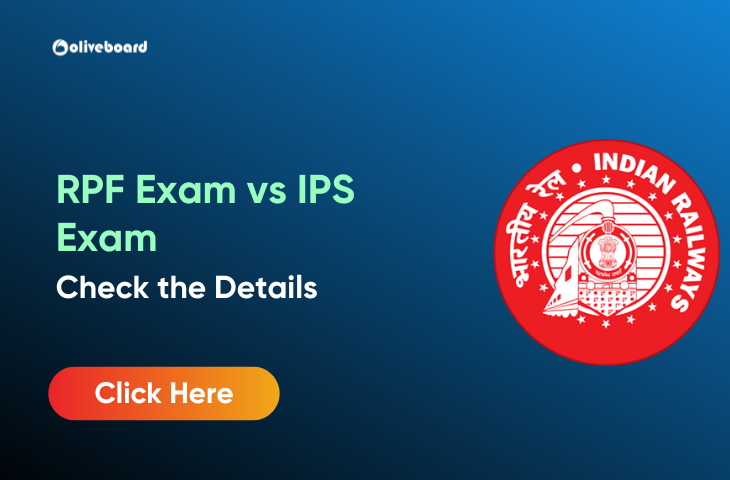RPF Exam vs IPS Exam
RPF Exam vs IPS Exam: The IPS and RPF exams offer pathways to esteemed careers in law enforcement in India. While the IPS exam focuses on serving within the Indian Police Service, responsible for national law and order, the RPF exam targets candidates aspiring to secure the Indian Railways. Despite their distinctions, both demand integrity and a dedication to public service. Let’s check various aspects of RPF Exam vs IPS Exam.
What Is RPF Exam and IPS Exam?
The RPF (Railway Protection Force) exam is conducted by the Indian Railways to recruit personnel for the protection and security of railway passengers, passenger area, and railway property. The RPF ensures the safety of passengers and their belongings, as well as maintains order and security in railway premises. It’s an important component of ensuring smooth operations and safeguarding passengers and railway infrastructure.
The IPS (Indian Police Service) exam, on the other hand, is conducted by the Union Public Service Commission (UPSC) in India. IPS is one of the three All India Services, the other two being the Indian Administrative Service (IAS) and the Indian Forest Service (IFS). The IPS exam is a part of the Civil Services Examination (CSE), which is one of the toughest and most prestigious competitive exams in India. IPS officers are responsible for maintaining law and order, preventing and detecting crimes, and managing police forces at various administrative levels in the country. They play a crucial role in ensuring public safety and security.
RPF Exam vs IPS Exam – Eligibility Criteria
Deciding between the RPF Exam and the IPS Exam is vital for those aspiring to serve in law enforcement. These paths have differing eligibility criteria, shaping unique routes toward the common goal of maintaining law and order in India.
RPF Exam:
- Age Limit: 18 to 25 years for Constable, 20 to 25 years for SI.
- Educational Qualification: 10th pass for Constable, Graduation for SI.
- Nationality: Must be an Indian citizen.
- Physical Standards:
| Position | Height (Male) | Height (Female) | Chest (Male Only) | Weight |
| Constable | 165 cm | 157 cm | Unexpanded: 80 cm, Expanded: 85 cm | Proportionate to height and age |
| Sub-Inspector (SI) | 165 cm | 157 cm | Unexpanded: 80 cm, Expanded: 85 cm | Proportionate to height and age |
- Number of Attempts: No limit until the candidate is within the age limit.
IPS Exam:
- Age Limit: Minimum age of 21 years, maximum age varies depending on category and benchmark physical disability.
- Educational Qualification: University degree (Graduate) from a recognized University.
- Nationality: Must be an Indian citizen.
- Physical Standards:
| Criteria | Male (General) | Male (ST, SC, OBC, Gorkhas, Garhwalias, Assamese, Kumaonis, Nagaland Tribals, etc) | Female (General) | Female (ST, SC, OBC, Gorkhas, Garhwalias, Assamese, Kumaonis, Nagaland Tribals, etc) |
| Height | 165 cm | 160 cm | 150 cm | 145 cm |
| Chest Girth | Minimum 84 cm with an expansion of 5 cm | Same as General | N/A | N/A |
| Vision | High standard for the color blind test, no inherent night blindness, stereoscopic vision | Same as General | High standard for the color blind test, no inherent night blindness, stereoscopic vision | Same as General |
- Number of Attempts: Limited based on the category of the candidate as per UPSC rules.
RPF Exam vs IPS Exam – Selection Process
Comparing the RPF and IPS exams highlights different routes into law enforcement. Understanding their unique selection procedures is essential for candidates to choose the right path.
| Selection Stage | RPF Exam | IPS Exam |
| Written Exam | Computer Based Test (CBT) assessing general knowledge, reasoning, and numerical aptitude. | Civil Services Preliminary Exam followed by the Main Examination. |
| Physical Tests | Physical Efficiency Test (PET) and Physical Measurement Test (PMT) to assess fitness and measurements. | Physical standards test as part of the overall Civil Services Examination process. |
| Document Verification | Verification of original documents. | Document verification during the interview/personality test stage. |
| Medical Examination | Required to ensure candidates are medically fit. | Detailed medical examination as per UPSC standards. |
| Interview | Not typically part of the RPF process. | Interview/Personality Test conducted by UPSC. |
RPF Exam vs IPS Exam – Exam Pattern
The RPF and IPS exams differ in their focus and content. The RPF exam tests knowledge related to railway security and general aptitude, while the IPS exam covers a wider range of subjects such as law, administration, and current affairs.
| Exam Pattern | RPF Exam | IPS Exam |
| Exam Mode | Online Computer Based Test (CBT) | Preliminary Exam (Objective), Mains Exam (Written), Interview (Personality Test) |
| Sections (CBT for RPF) | General Awareness, Arithmetic, General Intelligence & Reasoning | Prelims: General Studies, CSAT Mains: 9 papers including Essay, 4 General Studies, 2 Optional Subjects, Indian Language, English |
| Number of Questions (CBT for RPF) | 120 | Prelims: Paper-I (100 questions), Paper-II (80 questions) Mains: Descriptive type questions |
| Total Marks (CBT for RPF) | 120 | Prelims: Paper-I (200 marks), Paper-II (200 marks); Mains: 1750 marks; Interview: 275 marks |
| Duration (CBT for RPF) | 90 minutes | Prelims: 2 hours per paper; Mains: 3 hours per paper |
| Negative Marking (CBT for RPF) | Yes (1/3 mark deduction for incorrect answers) | Prelims: Yes (1/3 mark deduction for incorrect answers) Mains: No Negative Marking |
RPF Exam vs IPS Exam – Syllabus
Studying for the RPF (Railway Protection Force) and IPS (Indian Police Service) exams requires careful planning. The RPF exam focuses on railway security and law enforcement, while the IPS exam covers a wider range of subjects like law, governance, and administration.
RPF Exam:
- General Awareness: Topics include current events, Indian history, Art & Culture, Geography, Economics, General Polity, Indian Constitution, Sports, General Science.
- Arithmetic: Number systems, whole numbers, decimal and fractions, relationships between numbers, fundamental arithmetical operations, percentages, ratio and proportion, averages, interest, profit and loss, discount, use of table and graphs, mensuration, time and distance, ratio and time, time and work, etc.
- General Intelligence & Reasoning: Analogies, similarities and differences, spatial visualization, spatial orientation, problem-solving, analysis, judgment, decision making, visual memory, discrimination, observation, relationship concepts, arithmetical reasoning, verbal and figure classification, arithmetical number series, non-verbal series, coding and decoding, statement conclusion, syllogistic reasoning.
IPS Exam:
- Preliminary Examination: It consists of two papers, General Studies (Paper-I) and Civil Services Aptitude Test (CSAT) (Paper-II), covering topics like current events, history of India, Indian and World Geography, Indian Polity and Governance, Economic and Social Development, Environmental Ecology, General Science, Comprehension, Interpersonal Skills, Logical Reasoning and Analytical Ability, Decision Making and Problem Solving, Basic Numeracy, Data Interpretation, English Language Comprehension Skills.
- Main Examination: The Mains syllabus is extensive, including papers on Essay, General Studies (four papers covering Indian Heritage and Culture, History and Geography of the World and Society, Governance, Constitution, Polity, Social Justice and International Relations, Technology, Economic Development, Biodiversity, Environment, Security and Disaster Management), and two Optional Subjects chosen by the candidate from a list provided by UPSC. Additionally, there are papers on an Indian Language and English, testing the candidates’ comprehension, précis writing, usage and vocabulary, and short essays.
Conclusion
In Conclusion, While the IPS exam leads to the Indian Police Service, focusing on national law and order, the RPF exam is for securing the Indian Railways. Both require dedication to public service and integrity, despite their differences.
RPF Exam vs IPS Exam – FAQs
Ans: RPF Exam: 18 to 25 years for Constable, 20 to 25 years for SI.
IPS Exam: Minimum age of 21 years, maximum age varies depending on category and benchmark physical disability.
Ans: RPF Exam: Yes, specific height, chest (for males), and weight requirements.
IPS Exam: Yes, criteria include height, chest girth, and vision standards.
Ans: RPF Exam: No limit until the candidate is within the age limit.
IPS Exam: Limited based on the category of the candidate as per UPSC rules.
Ans: RPF Exam: Computer Based Test (CBT) with sections like General Awareness, Arithmetic, and General Intelligence & Reasoning.
IPS Exam: Preliminary Exam (Objective), Mains Exam (Written), and Interview (Personality Test).
- RPF SI Books, Subject Wise Book List for Preparation

- RPF SI Answer Key 2025, Steps To Download & Calculate Marks

- Railway Govt Jobs 2025, Latest RRB, RPF Recruitment Exams

- RPF Constable Scorecard Out, Check Subject Wise Marks

- RPF Constable Exam Centre 2025, Zone Wise Centre List

- RPF Constable Physical Date 2025, Check PET & PMT Details


